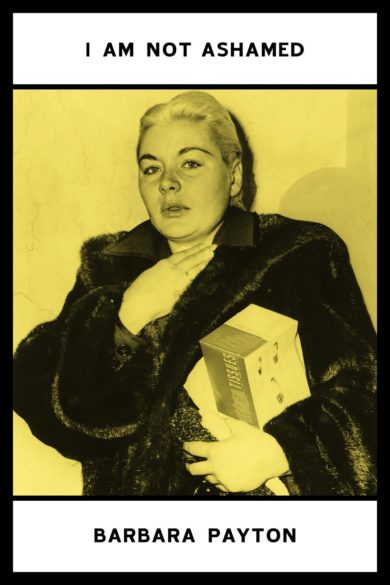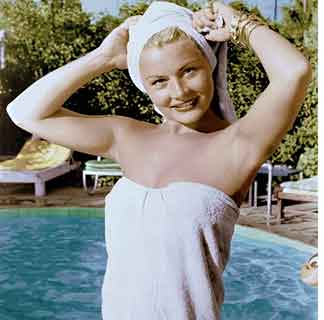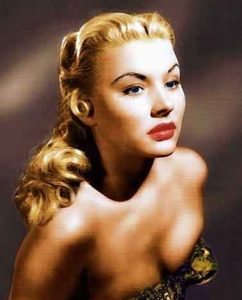 By BARBARA PAYTON (Spurl Editions; 1963/2016)
By BARBARA PAYTON (Spurl Editions; 1963/2016)
Anyone out there remember Barbara Payton? She was a major Hollywood player in the late 1940s and early 1950s, starring in high profilers like TRAPPED (1949) and the James Cagney vehicle KISS TOMORROW GOODBYE (1950), but had an extremely precipitous fall, ending up a drug addicted prostitute and dying at age 39. This 200 page memoir, transcribed by an uncredited Leo Guild, was a cash grab, initially published by the notorious paperback outfit Holloway House (which was then known primarily for smut). This means it shouldn’t be taken as a definitive biographical resource on Payton, but for what it is, an unabashedly sensationalistic Old Hollywood expose, it’s pretty damn compelling (and a good companion-piece to THE BIG LOVE).
…an unabashedly sensationalistic Old Hollywood expose…
 The newly published Spurl Edition version of I AM NOT ASHAMED helpfully includes a chronology of Barbara Payton’s life, which nails down many details that she and Guild leave vague. Those details include the names of Payton’s many high-profile lovers, such as George Raft, Bob Hope and Lloyd Bridges, who go unidentified in the text, and the existence of a son who goes largely unmentioned.
The newly published Spurl Edition version of I AM NOT ASHAMED helpfully includes a chronology of Barbara Payton’s life, which nails down many details that she and Guild leave vague. Those details include the names of Payton’s many high-profile lovers, such as George Raft, Bob Hope and Lloyd Bridges, who go unidentified in the text, and the existence of a son who goes largely unmentioned.
Sex, it seemed, played a huge part in Payton’s rise to the top. She has no qualms about admitting that she used her good looks and seductive manner to get roles, and in one case to finance a film. The underbelly of Old Hollywood is laid bare, and it’s not a pretty picture, with sexual exploitation and harassment running rampant.
 Payton also admits to having been quite reckless in her financial dealings, spending and/or giving away all the money she earned. When “the slide” commenced and she was no longer able to find work in Hollywood, Payton turned to prostitution. The 1960s version of virtue signaling is evident in her claim that she only has sex with black men because she was attempting to combat racism (and also because it was black men her pimp chose for her). But as the title makes clear, Payton wasn’t ashamed of her career arc, and begs her readers not to “judge me harshly just for living.”
Payton also admits to having been quite reckless in her financial dealings, spending and/or giving away all the money she earned. When “the slide” commenced and she was no longer able to find work in Hollywood, Payton turned to prostitution. The 1960s version of virtue signaling is evident in her claim that she only has sex with black men because she was attempting to combat racism (and also because it was black men her pimp chose for her). But as the title makes clear, Payton wasn’t ashamed of her career arc, and begs her readers not to “judge me harshly just for living.”
…her claim that she only has sex with black men because she was attempting to combat racism…
The book concludes with a retrospective 1967 Leo Guild essay on Payton, who he views as “the prototype of the starlet or actress who becomes disillusioned, loses her looks, can’t get a job, resorts to prostitution and ends in the haze of alcohol and narcotics in an effort to forget the worst and remember the best.” This book should be required reading for anyone considering a career in Hollywood, even if today’s Tiseltown isn’t quite as ruthless as the mid-Twentieth Century version described here.
